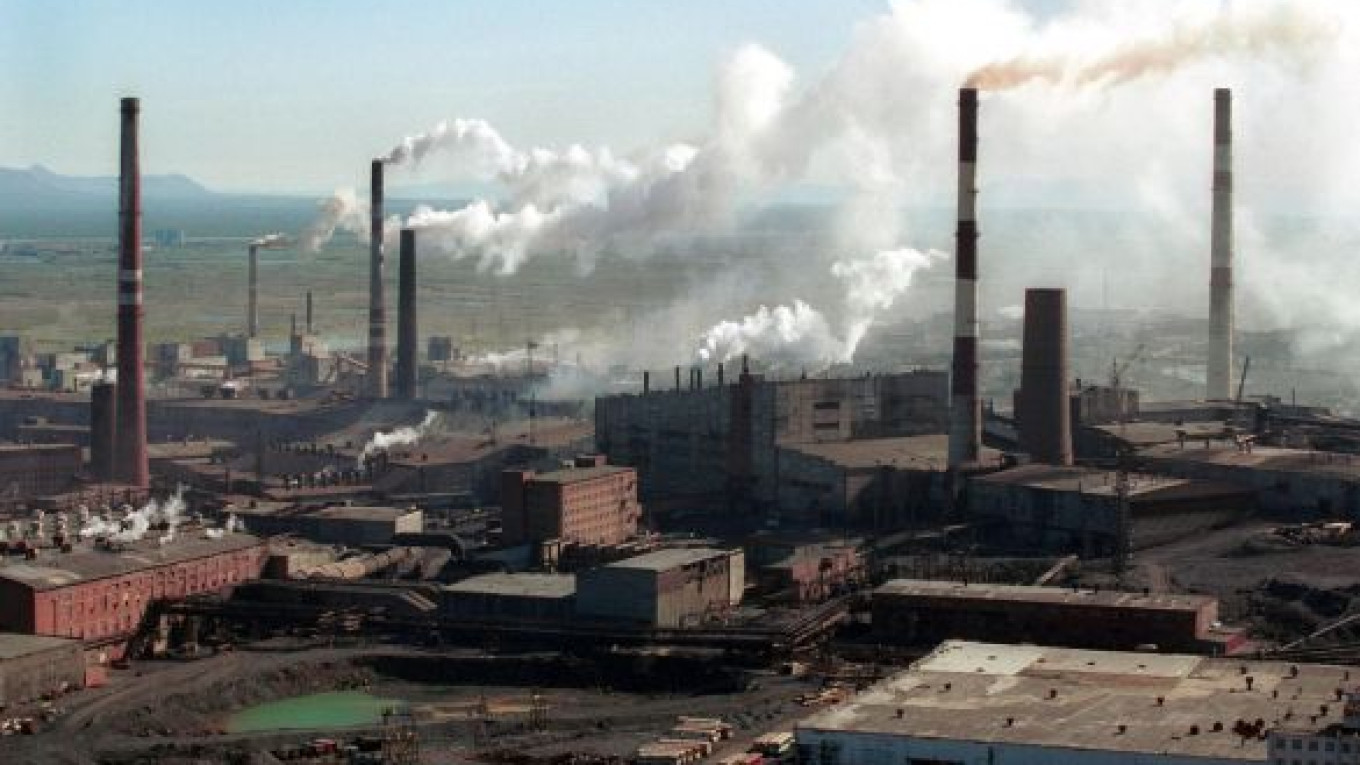| 1. | Norilsk |
| 2. | Cherepovets |
| 3. | Novokuznetsk |
| 4. | Lipetsk |
| 5. | Magnitogorsk |
| 6. | Angarsk |
| 7. | Omsk |
| 8. | Krasnoyarsk |
| 9. | Ufa |
| 10. | Chelyabinsk |
| … | |
| 16. | Moscow |
| ?€¦ | |
| 20. | St.Petersburg |
| ?€¦ | |
| 54. | Kyzyl |
| 55. | Vladimir |
| 56. | Stavropol |
Source: State Statistics Service
The Krasnoyarsk region city of Norilsk remained Russia's most polluted city for the 19th year running, though it managed a slight decrease in harmful emissions — unlike the country in general.
Air pollution in Russia increased 100,000 tons to 19.1 million tons year on year in 2010, the State Statistics Service said, RIA-Novosti Wednesday.
Emissions nationwide peaked in 2007 with 20.6 million tons, but then declined ?€” until last year, the report said.
Norilsk, a city of 201,000, topped the list of the 56 most polluted Russian cities with 1.924 million tons of pollutants last year, down from 1.958 million tons in 2009.
Norilsk has led the list every year since the statistics service began the rating in 1992. The city, home to metallurgical giant Norilsk Nickel, gets its severe pollution mainly from nickel smelting operations, which cause acid rain and smog.
Cherepovets, an industrial hub in the Vologda region, came in a distant second with 333,300 tons of pollutants last year ?€” trailed by Novokuznetsk with 301,100 tons and Lipetsk with 299,100 tons.
The rest of the top 10 was Magnitogorsk, Angarsk, Omsk, Krasnoyarsk, Ufa and Chelyabinsk, respectively.
Moscow ranked 16th, emitting 62,900 tons of pollutants last year ?€” 1,900 tons more than in 2009. St. Petersburg came in 20th with 56,600 tons, up 6,100 tons.
The cleanest city was Stavropol, with a mere 3,600 tons of pollutants in 2010. Vladimir and Kyzyl followed with 4,000 tons and 5,800 tons, respectively.
A Message from The Moscow Times:
Dear readers,
We are facing unprecedented challenges. Russia's Prosecutor General's Office has designated The Moscow Times as an "undesirable" organization, criminalizing our work and putting our staff at risk of prosecution. This follows our earlier unjust labeling as a "foreign agent."
These actions are direct attempts to silence independent journalism in Russia. The authorities claim our work "discredits the decisions of the Russian leadership." We see things differently: we strive to provide accurate, unbiased reporting on Russia.
We, the journalists of The Moscow Times, refuse to be silenced. But to continue our work, we need your help.
Your support, no matter how small, makes a world of difference. If you can, please support us monthly starting from just $2. It's quick to set up, and every contribution makes a significant impact.
By supporting The Moscow Times, you're defending open, independent journalism in the face of repression. Thank you for standing with us.
Remind me later.


